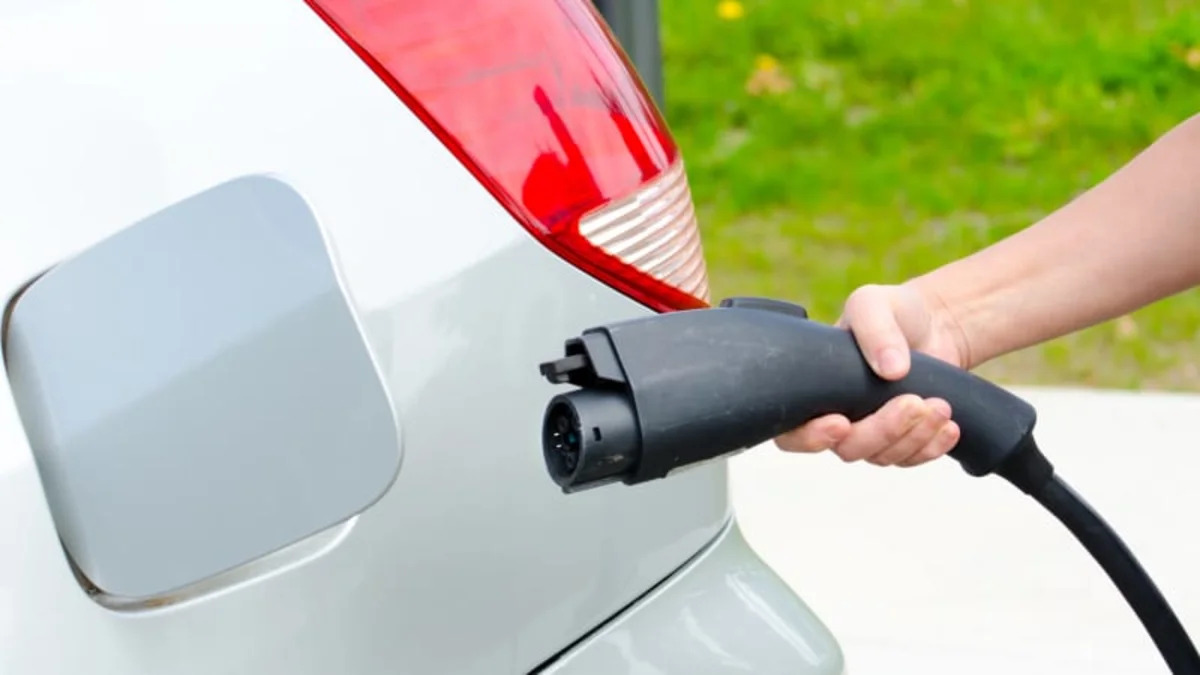VW's diesel scandal is causing a small civil war in the electric vehicle world. Last month, 28 companies sent a letter to the Department of Justice saying that the way that the automaker's $14.7-billion settlement – which could be agreed to tomorrow – includes $2 billion for EV infrastructure could damage the industry by hurting investment. The letter called for an independent administrator to oversee how the funds are spent and said, in part:
Nissan's point comes from its history in EV infrastructure investment. It told the DOJ that is has invested millions in open standard fast charging in the US, "and has deployed more than half of the 50kW dual CHAdeMO and CCS equipment available in the market today." Remember, Nissan Leafs cannot use the CCS plugs, so the automaker is not just full of talk when it comes to making investments that can help grow the EV pie, rather than just one company. Nissan did say, though, that the money should not be used for any hydrogen stations.
Here's what Nissan told the DOJ about how the money should be used:
Nissan disagrees with the group's idea that the $2 billion is a negative thing. We don't yet know the details about how the money will be spent, other than that $800 million will go to California and $1.2 billion nationally. If the judge approves the settlement today, as is expected, there will be a big discussion about the best way to spend it all. Disagreeing in tone with the 28 companies that signed the letter, Nissan sent its own letter to the DOJ that said the automaker wants to "serve as an ally" so that the money is used, "in a way that is beneficial for the entire industry." Nissan said, "We believe that this funding could be instrumental in supporting a continued 'Infrastructure for All' approach that benefits all automotive OEMs and importantly, increases the pace of EV adoption." [Note: these quotes come from Nissan, which shared them with AutoblogGreen in a discussion about the contents of the letter, but are not necessarily directly from the letter itself.]The agreement shouldn't pick winners and losers, especially given that this emerging market transition will in no small part define 21st century transportation. The program should be structured to benefit drivers in California and across the nation, not enable the settling defendants to enter or influence the markets for [zero-emission vehicle] charging and fueling equipment and services.
Nissan's point comes from its history in EV infrastructure investment. It told the DOJ that is has invested millions in open standard fast charging in the US, "and has deployed more than half of the 50kW dual CHAdeMO and CCS equipment available in the market today." Remember, Nissan Leafs cannot use the CCS plugs, so the automaker is not just full of talk when it comes to making investments that can help grow the EV pie, rather than just one company. Nissan did say, though, that the money should not be used for any hydrogen stations.
Here's what Nissan told the DOJ about how the money should be used:
- Funding should be allocated to projects that are led, organized and managed at a national level to avoid a patchwork of initiatives driven by individual states or local entities that are not holistic and/or coordinated.
- Funding that supports Fast Charging must include multi-standard/open-standard equipment (including CHAdeMO).
- Public DC Fast Charging should be prioritized over other efforts, and funding should be allocated towards areas of the ZEV industry that suffer the largest market failures due to limited short-term ROI leading to a lack of private-sector investment.
- Funding should address the need for a National High-Speed Fast Charging Network along interstates.
- All networked equipment funded under the ZEV Investment Commitment should support the Open Charge Point Protocol (OPCC) to allow choice between network providers, and it should allow for open credit card payment methods (EMV and mobile payments) without requiring drivers to sign-up for proprietary network memberships.
- Utilities should continue to invest in pro-EV policies and programs given the sector will be one of the largest beneficiaries of the growth of electric refueling.
- Funding for hydrogen refueling may dilute capital available to make significant progress on EV infrastructure expansion due to the resource intensiveness of hydrogen refueling.


Sign in to post
Please sign in to leave a comment.
Continue